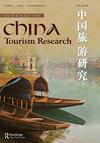出境游与国内旅游支出:塞勒心理账户与家庭效用函数的视角
IF 2
Q3 HOSPITALITY, LEISURE, SPORT & TOURISM
引用次数: 0
摘要
传统的消费经济理论认为出境游消费会抑制国内旅游消费。然而,人们对这种效应是否真的存在知之甚少。本研究运用塞勒的心理会计理论和家庭效用函数模型,以1147名中国游客为样本,检验了国内和出境旅游消费之间的关系。研究认为,出境旅游支出对国内旅游支出具有促进作用,因为:1)大多数中国游客的出境旅游仍以浅体验的观光旅游为特征;2)出境旅游中未被满足的需求和支出可以促进国内旅游支出。该研究有两个重要的理论贡献。首先,研究结果有助于运用心理会计理论解决国内支出与对外支出关系的分歧。其次,考虑了旅游产品特征和游客体验对旅游支出分配的影响。鉴于大流行的影响,禁止出境游,这样的研究是及时的,具有重要的实证意义。本文章由计算机程序翻译,如有差异,请以英文原文为准。
Outbound vs. domestic travel expenditure: the lens of thaler’s mental account and family utility function
ABSTRACT Traditional theories of consumer economy suggest that outbound tourism expenditure may inhibit domestic tourism expenditure. However, little is known about whether the effect really exists. This study applied Thaler’s Mental Accounting Theory and the Family Utility Function Model to test the relationship between domestic and outbound tourism expenditure using a sample of 1,147 Chinese travelers. The study suggests that outbound tourism expenditure has a promotional effect on domestic tourism expenditure, because: 1) the majority of Chinese travelers’ outbound tourism is still characterized by sightseeing tours with shallow experiences, and 2) unsatisfied needs and expenditures in outbound travel can promote expenditures in domestic tourism. The study makes two important theoretical contributions. First, findings of the study helped to solve the disagreement on the relationships between domestic and outbound expenditures by applying the Mental Accounting Theory. Second, it considered characteristics of both tourism products and tourists’ experiences’ influence on the allocation of travel expenditures. Given the influence of the pandemic which prohibited outbound travel, such a study is timely and has meaningful empirical implications.
求助全文
通过发布文献求助,成功后即可免费获取论文全文。
去求助
来源期刊

Journal of China Tourism Research
HOSPITALITY, LEISURE, SPORT & TOURISM-
CiteScore
4.00
自引率
10.50%
发文量
40
期刊介绍:
Journal of China Tourism Research (JCTR) is the official journal of the International Association of China Tourism Studies (IACTS) and is now indexed in the Emerging Sources Citation Index (ESCI)! JCTR is a truly international journal that publishes the latest research on tourism (all articles printed in English with Chinese abstracts) that relates to China and the Chinese. It provides a rich forum for exchange of fresh information and ideas among academics and practitioners; fosters and enhances cutting-edge research activities that advance the knowledge of tourism; and discusses the relevance of tourism to Chinese society. The journal encourages interdisciplinary scholarship and commentaries, aims at the highest intellectual level, and only publishes manuscripts that make significant contributions to the subject areas.
 求助内容:
求助内容: 应助结果提醒方式:
应助结果提醒方式:


